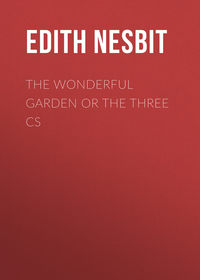Kitabı oku: «The Wonderful Garden or The Three Cs», sayfa 13
Bir şeyler ters gitti, lütfen daha sonra tekrar deneyin
Türler ve etiketler
Yaş sınırı:
12+Litres'teki yayın tarihi:
28 mayıs 2017Hacim:
250 s. 1 illüstrasyonTelif hakkı:
Public Domain